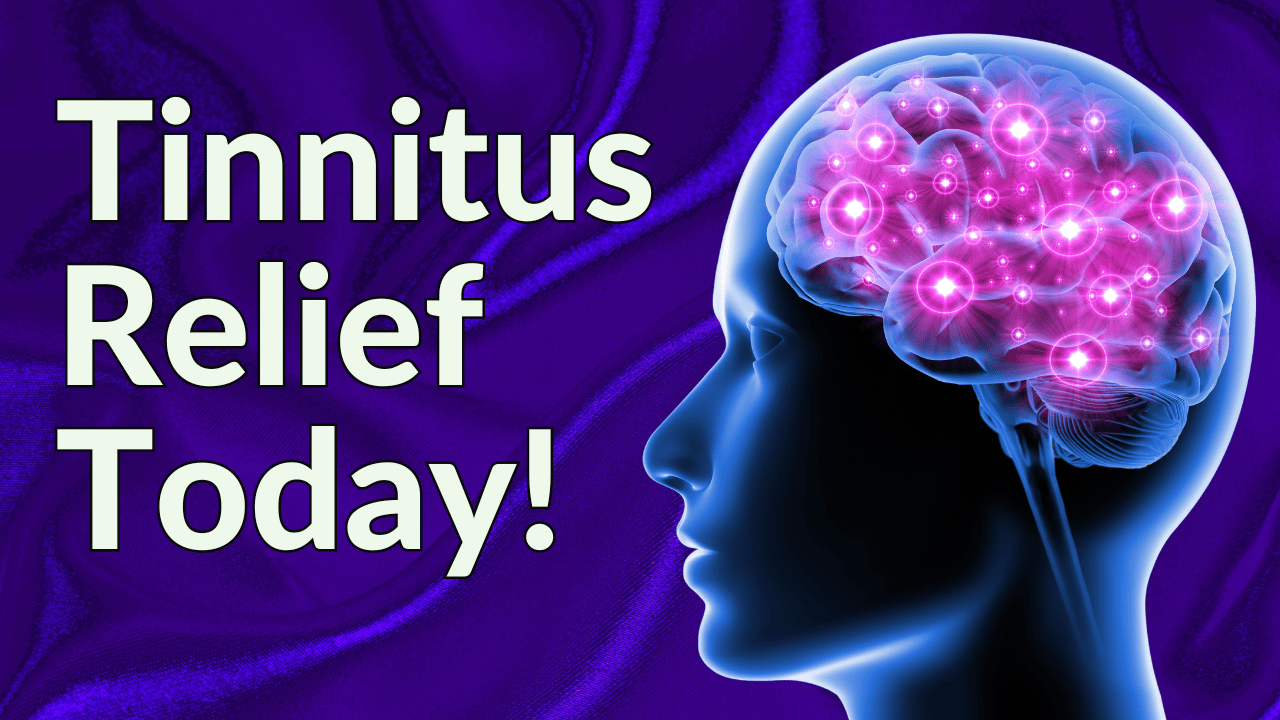Determining the root cause of tinnitus is essential to find the most effective treatment and successfully reduce symptoms or your response to symptoms. To have the best chance of finding the root cause, it is vital for practitioners, including audiologists, to have a clear picture of all of the variables at play. The following are 20 questions that can help get to the root cause of tinnitus, in order to select the intervention most likely to successfully address symptoms.
1. When Did Tinnitus Begin?
This is among the first questions specifically because the onset of tinnitus can provide insight into the precise reason for experiencing tinnitus symptoms. If tinnitus began immediately following an illness or an injury, that could be the culprit. If it started after a certain age, that could also lend itself to determining what is at play. The time of onset should be approximated as closely as possible to help tease out any possible links to onset time and cause. Stress, pain, and loud noise exposure can all lead to tinnitus onset.
"As a recent graduate who’s achieved stage four habituation, I cannot thank Treble Health enough for getting me to the finish line."


"As a recent graduate who’s achieved stage four habituation, I cannot thank Treble Health enough for getting me to the finish line."
– Louis
Book a free consultation to learn which Treble Health solution is right for you. Join Louis and thousands more who have found lasting tinnitus relief.
2. Does Tinnitus Volume Fluctuate?
The fluctuation of tinnitus is one of the steps used to evaluate how severe a diagnosis is. If tinnitus comes and goes regularly, you may have a mild case of tinnitus, which may or may not resolve on its own. If tinnitus volume is steady, and symptoms do not regularly wax and wane, you may be experiencing a more severe form of the condition, which will impact treatment options.
3. Do Any Factors Exacerbate Tinnitus?
Some factors can exacerbate symptoms, and those factors can also indicate the possible root cause of the condition. Stress, poor sleep, and loud noises can all worsen tinnitus symptoms. If these are linked to tinnitus strength, a hearing health professional can help work them into a treatment plan, as lifestyle factors and other areas of health can factor into treatment.
4. Do Any Factors Alleviate Tinnitus?
Are you able to do anything to successfully mitigate symptoms, or reduce their strength? For some, sound therapy, relaxation, and focused work reduces the intensity of symptoms. If you have something in your tool belt that you already use to help mitigate or lessen your symptoms, that can both help point to the reason for tinnitus onset and help inform the direction of your treatment.



5. Where Is Tinnitus Perceived?
Is tinnitus perceived in one ear? Both? Is it only heard within your head, rather than being heard in your ears? These details may not seem important, but they can actually provide a lot of information about the type of tinnitus being experienced and inform treatment plans. Prior to any appointment you may make, take some time to evaluate the location of phantom sounds.
6. What Is The Nature Of The Sound?
Do you hear a shrill, high ringing? Do you hear more of an electrical sound, or a buzzing? Is the sound more similar to static? All of these sounds can come from different places and indicate different points of origin, so they are important to take note of in order to provide a full picture for you and your evaluating physician?
7. Do You Have A History Of Injury Or Illness?
Tinnitus has been linked to injury and illnesses involving the ears, head, and neck. Illnesses involving the ears, auditory system, or even sinus system can lead to the onset of tinnitus. In the case of acute infection, tinnitus typically resolves when the illness itself resolves. In chronic cases, as might be the case with Eustachian tube dysfunction or an autoimmune disorder, management of symptoms is the standard route.
8. Does Movement Impact Phantom Sounds?
Different types of tinnitus are impacted by different factors, and one particular type of tinnitus, called somatic tinnitus, changes according to movements of the head and neck. If moving your head or neck changes tinnitus perception, or in any way alters the way you hear phantom sounds, that is an important note to give to your health professional, as it can mean somatic tinnitus is the most likely diagnosis.
9. Have You Had Any Previous Tests?
Even if tests were completed in the distant past, it can be helpful to know any tests that have been run regarding your head, neck, ears, or general auditory system. A testing history can help an audiologist or other hearing health professional know precisely where to start, and where answers are unlikely to be unearthed.
10. What Were Your Test Results?
Again, even if tests were conducted some time ago, it can be helpful to know a full medical history, including any results of tests involving the auditory system. Because tinnitus is a multifaceted condition with plenty of different causes and treatment options, the more a hearing health professional can learn, the more likely they are to provide you with an accurate diagnosis and subsequent treatment plan.
11. On A Scale Of 1 To 10, How Is Your Daily Life Impacted?
This is an important question, as it helps gauge the level of severity and how it impacts your life. Intensity can help a professional determine whether a more intensive treatment regimen is best, or a more gradual approach. For some, tinnitus is extremely mild, and constitutes little more than a mild annoyance. For others, tinnitus is severe enough to significantly impact sleep, focus, and mental health, and can interfere with successfully completing work projects, school projects, and even engaging with family and friends. If you want to learn more about your tinnitus, we encourage you to take our free tinnitus quiz. This quiz takes less than 5 minutes to complete, and will provide you with personalized treatment recommendations.



12. Do You Have A History Of Loud Noise Exposure?
Loud noise exposure is a significant cause of hearing loss and tinnitus both, and identifying the presence of loud hearing can help identify the likely source of decreases to hearing health. From listening to loud music at home, to frequenting concerts, to working in close proximity to heavy machinery and construction, there are plenty of ways to be exposed to loud noises in a quantity or strength powerful enough to impact hearing.
13. Do You Have a Family History of Auditory Issues?
Hearing loss, Eustachian tube dysfunction, tinnitus – does your family have a history of disorders related to the auditory system? While a family history of illness, disorders, or disease certainly does not guarantee experiencing decreases to hearing health and function, it can be a significant source of concern and should always be taken into account.
14. What Is Your Medical History?
Just as family history is important, medical history can provide tremendous insight into your hearing health. Past infections, surgeries, injuries, and illnesses can all provide a clearer picture regarding the potential causes of tinnitus, and the best path forward in treating the condition. Before you meet with a hearing health professional, you can quickly jot down your medical history so it remains top of mind.
15. Are You Currently On or Have You Been On Any Medications?
Some medications are ototoxic, or are capable of negatively impacting ears and the auditory system as a whole. If you are taking any medications–check with your doctor about side effects–it is possible that your ability to hear properly has been affected. Tinnitus is one possible side effect when ototoxicity is present, but hearing loss and other hearing conditions are also possible.
16. Do You Have Symptoms of or Have You Had a Diagnosis of Hyperacusis?
Hyperacusis is a condition characterized by a reduced tolerance to sound. In more mild instances, hyperacusis causes discomfort, but more severe cases can result in significant pain. Pain is typically associated with loud noises, while discomfort is usually associated with standard, everyday noises that do not typically cause harm or discomfort, such as clapping or horns honking. Hyperacusis has ties to tinnitus, so the presence of one could inform the presence of the other.
17. Have You Already Tried Tinnitus Treatment?
Is there a point at which you have already enlisted some form of tinnitus intervention? This question is another important one, because it can help practitioners determine what may work, based on interventions that have or have not worked for a patient in the past. Even if a treatment has not worked in the past, a practitioner may not rule it out entirely, but may recognize the need to make some changes to the protocol used in your treatment.



18. Have You Had Any Successes Or Setbacks?
Monitoring and taking note of any successes or setbacks you have had in your journey to manage your tinnitus can help provide a starting point. If there is a particular intervention that you have tried and not found at all valuable, for instance, that may be put on the backburner for any future treatment plans. If you have found a dedicated treatment that works for you, or even some self-administered practices to ease your symptoms, make a note, as they may be wrapped into your treatment plan to increase the likelihood of seeing positive results.
19. Do You Experience Ear Pain Or Discomfort?
Ear pain and discomfort can indicate the presence of a medical cause for tinnitus symptoms. Pain hyperacusis is one possible condition that can present with both tinnitus and ear pain or discomfort. Sinus and ear infections, too, can result in both of these occurring in tandem. Addressing the source of ear pain and discomfort can help alleviate the symptoms of tinnitus.
20. What Are Your Goals?
Understanding your treatment goals can help inform the type of treatment you employ for your tinnitus symptoms. If your goal is to increase quality of life, you can use a combination of therapies and lifestyle changes. If your goal is to increase concentration or minimize mental health impacts, your treatment plan may involve medications that can aid in these while using therapies for tinnitus.
Tinnitus Treatment That Works
Tinnitus treatment’s efficacy will depend on a thorough workup of and history of a patient. Although there are some basic tinnitus treatment options that are typically used for tinnitus as a whole, different interventions will have different rates of success according to the underlying cause of the tinnitus. If, for instance, illness or injury are at the root of tinnitus onset, tinnitus patients will need to first address that illness or injury, then determine whether or not tinnitus is persisting.
Treble Health’s audiologists deliver targeted tinnitus treatment options for people from a wide variety of backgrounds and with many different needs. Some of the more common forms of intervention that we suggest include the following:
Tinnitus Retraining Therapy (TRT)
TRT is a form of tinnitus intervention that combines sound therapy with counseling and education, in order to reduce the strong emotional and nervous system reactions to tinnitus sounds. When TRT is successful, participants see a significant reduction in elevated responses to symptoms.
Hearing Aids
Although hearing aids are primarily seen as interventions for hearing loss, they can also be useful for tinnitus. Hearing aids can help amplify sounds to reduce the perception of tinnitus, and they can also be used to deliver sound therapy directly into your ears.
Cognitive Behavioral Therapy (CBT)
CBT is a mental health intervention, but has proven useful for tinnitus treatment, as it allows tinnitus patients to improve the mental health effects of the condition. It can also help reduce anxiety and depression, which have been linked to tinnitus.
Sound Therapy
Sound therapy is a type of therapy delivered either through dedicated in-ear devices or tabletop devices. In both cases, sounds are used to essentially “overpower” the sounds of tinnitus, to lessen the intensity of symptoms and improve quality of life.
Work With Treble Health To Reduce Your Tinnitus
If you are struggling to manage your tinnitus, have hope: there are effective treatment options available for tinnitus patients. After you have undergone a comprehensive evaluation, including a medical and family history, and a thorough review of symptoms, an audiologist or ENT doctor can order hearing tests to determine the most likely root of tinnitus. From there, a treatment plan can be drawn up, and you can start experiencing relief from symptoms. Using the questions above, you can help identify the root of your tinnitus, or get you started on the right path toward effective treatment.
The audiologists at Treble Health have worked with thousands of tinnitus patients, and understand that tinnitus is more than just a nuisance; it’s a condition that can affect your daily life and emotional health. The journey to finding effective tinnitus treatment can be difficult, especially when faced with the response of, “you’ll just have to learn to live with it.” If you have questions about tinnitus treatment, we encourage you to schedule a complimentary telehealth consultation with one of our audiology experts.
During this complimentary 20-minute Zoom session, you’ll have a no-obligation chance to receive tailored guidance and have all your tinnitus-related questions answered. Our audiologists have decades of experience, and are dedicated to providing personalized solutions that address your unique situation. This call is an opportunity to gain insights and strategies from professionals, empowering you on your path to finding relief from tinnitus.
Next Step: Book Free Consultation
- 75% of patients reduced their tinnitus within three months after following our recommendations.
- "I feel like Treble Health literally gave me my life back." - Randy S. (verified customer)
- Join thousands of people who have reduced their tinnitus after scheduling a free consultation.




















